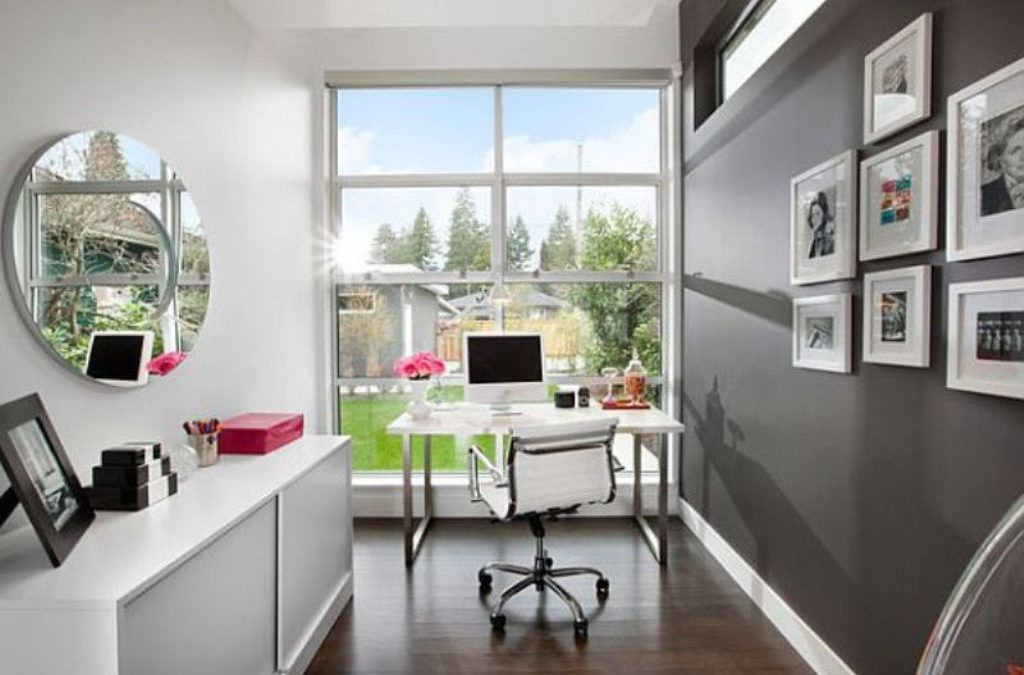
Rather than drain your current energy, you should protect it by choosing a suitable working environment, adopting policies that eliminate continual interruptions, and maintaining a work pace that does not create stress or put an unrealistic demand on your brain. This might be achieved by limiting work sessions to a maximum of 90 minutes before taking a major break, and alternating between mental work and physical or emotional work throughout the day.
Distractions in particular are energy drainers because they involve multitasking – switching mentally to and from the interruptions – in an attempt to address those new challenges while maintaining a degree of focus on the project at hand. That’s why it’s important to build a habit of turning off cell phones, engaging voicemail on land lines, ignoring email, and having a workplace devoid of visual distractions while you focus on your priority work.
Here are 7 specific things you can do to help maintain focus while working on an important project.
- Schedule priorities during “prime time.”
Our brains are programmed to keep alert for danger, and pick up quickly on any perceived threats, including innocuous interruptions. So when it comes to interruptions, even your own brain works against you. Most traditional suggestions of the past, such as a closed door, screened calls, departmental quiet hours, and office layout no longer apply since the office environment has changed considerably. Two things that are still important, however, are the times you choose to work on priority tasks, and the length of time you spend on that task or project. The most productive time of the day is 10:30 AM for most people so mornings should be reserved for priority work. Early birds should start their major products even earlier. Focus is at a high during this prime time so schedule your top priorities during this first 90-minute work period.
- Dispense with the little things first.
It’s the little things that distract you and prevent you from focusing fully on the important things. For example, according to Daniel Levinson, author of The organized mind, the awareness of an email waiting to be answered can reduce your IQ by 10 points. A part of your brain is constantly alert for something unusual – which it perceives as a threat – so it’s natural that you are susceptible to these distractions. It makes sense therefore to get rid of those distractions before attempting to concentrate on the priorities of the day. Spend the first half-hour or so of the day checking your email, voicemail, text messages etc. – things that would otherwise be preying on your mind throughout the day. Any actions required that cannot be handled in a minute or two can be added to your “To do” list. I know this flies in the face of most experts’ advice; but it works. And it also gets you started, acts as a warm-up period, and builds up momentum for the day.
- Select a “high performance” work area.
If you have any influence on selecting your work location, take advantage of it. Some people work best at home in the mornings; others at a coffee shop. Choose a location where you can best concentrate on the task at hand. Research carried out at the University of Illinois on the effects of background noise on creativity found that the level of noise experienced in a bustling coffee shop enhanced performance and even helped people concentrate. If you can’t get away from the office there’s a website at coffitivity.com that lets you bring the sound of a coffee shop to your computer while you work. Coffitivity recreates the ambient sounds of a cafe to boost your creativity and help you work better. Also, you might experiment with background music, some of which has been shown to improve focus.
- Try shorter work modules.
Stefan Klein, in his book The Secret Pulse of Time, reported that psychologist Leonard Giambre documented our mind’s tendency to wander. He asked people to solve a puzzle. At random times he would remind them of their task with a beep. If they were daydreaming or thinking of something else other than the task at the time of the beep, they were to push a button. In the course of the half-hour experiment, they pressed the button an average of over 40 times. The longer you work on a specific task, the more chances you have of interrupting yourself. The planning or executive center of your brain likes to work in controllable chunks with well-defined beginnings and endings. Five or 10-minute spurts work amid continuing interruptions are counterproductive and exhausting. It takes less energy to focus than to multitask. So organize your day in a way that maximizes your brain’s efficiency. If the 90-minute work sessions recommended earlier don’t seem to work for you, however, try shorter work sessions. But avoid all-day marathons.
Control the technology.
Attention spans seem to be getting smaller for everyone. Research shows that the Internet and digital technology can have a negative impact on our ability to learn, focus, pay attention, memorize and relate to others on a personal basis. It also gobbles up our time, encourages busyness and multitasking, and stifles creativity. Regardless of where you work, it’s important that you control the technology. Turn off your cell phone or smartphone, engage the voice mail and ignore email while you work on your scheduled project. Maintain focus on the task, jotting down ideas that pop into your mind without being detoured by them. And be sure to develop personal policies as to how often you check incoming messages and when you turn off the technology for the evening.
- Get plenty of sleep and exercise.
You will always encounter a certain number of both internal and external distractions that impede your progress. That’s why our brain-based executive skills – such as response inhibition, sustained attention and emotional control – discussed in other blog articles impact our focus. Internal distractions could include such things as stress and tiredness as well as self-interruptions. It’s important to get adequate sleep, a healthy diet and plenty of exercise. These are especially important to strengthen your goal-directed persistence and other executive skills since we are more easily side-tracked and lack energy when we are tired, stressed or ill. Dr. Mike Dow, quoting CDC statistics, says that 50 million Americans report they are not getting enough sleep. Sleep deprivation has been linked not only to susceptibility to distractions, but to such things as Type 2 diabetes, obesity, breast and colon cancer, cognitive skills and performance as well.
- Organize your work area.
Organizing your work area increases your ability to focus. As we read more about the workings of our brain, we learn more about the importance of getting organized. For example, according to neuroscientist Torkel Klingberg, author of The overflowing brain, the more items on your desk, the greater the demand on your attention. So keep your workplace clear. Set up your electronic and hard copy file systems, your follow-up system, the location of your inventory and office supplies, the layout of your desk and bookshelves, and so on. We tend to deal with problems and work on tasks in the order in which they crop up instead of prioritizing them. So organize your work as well, prioritizing your tasks based on importance rather than urgency, and entering these important tasks in your planner rather than leaving them on a “To do” list.
By using self-control, and being mindful that distractions are likely to occur, you can consciously resist the impulse to yield to distractions when they appear. The more times you resist, the easier it becomes. The habit of interrupting yourself can be replaced with one of sustained attention to the task at hand.
Several of the executive skills have to do with self-discipline and willpower and can be improved through practice. For example turn down desert or second cup of coffee once in a while, periodically give up your favorite TV program or sporting event, and so on. Have a glass of water when you really feel like soda, and resist that chocolate bar after golf. Self-discipline is like a muscle that can be strengthened through use.
Next blog article: Improving performance with office greenery.


Recent Comments